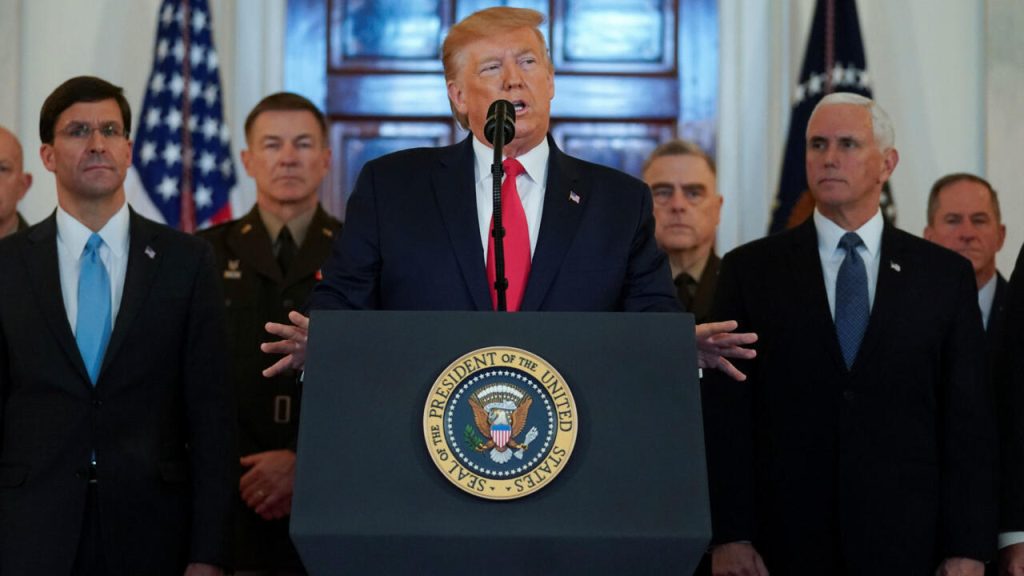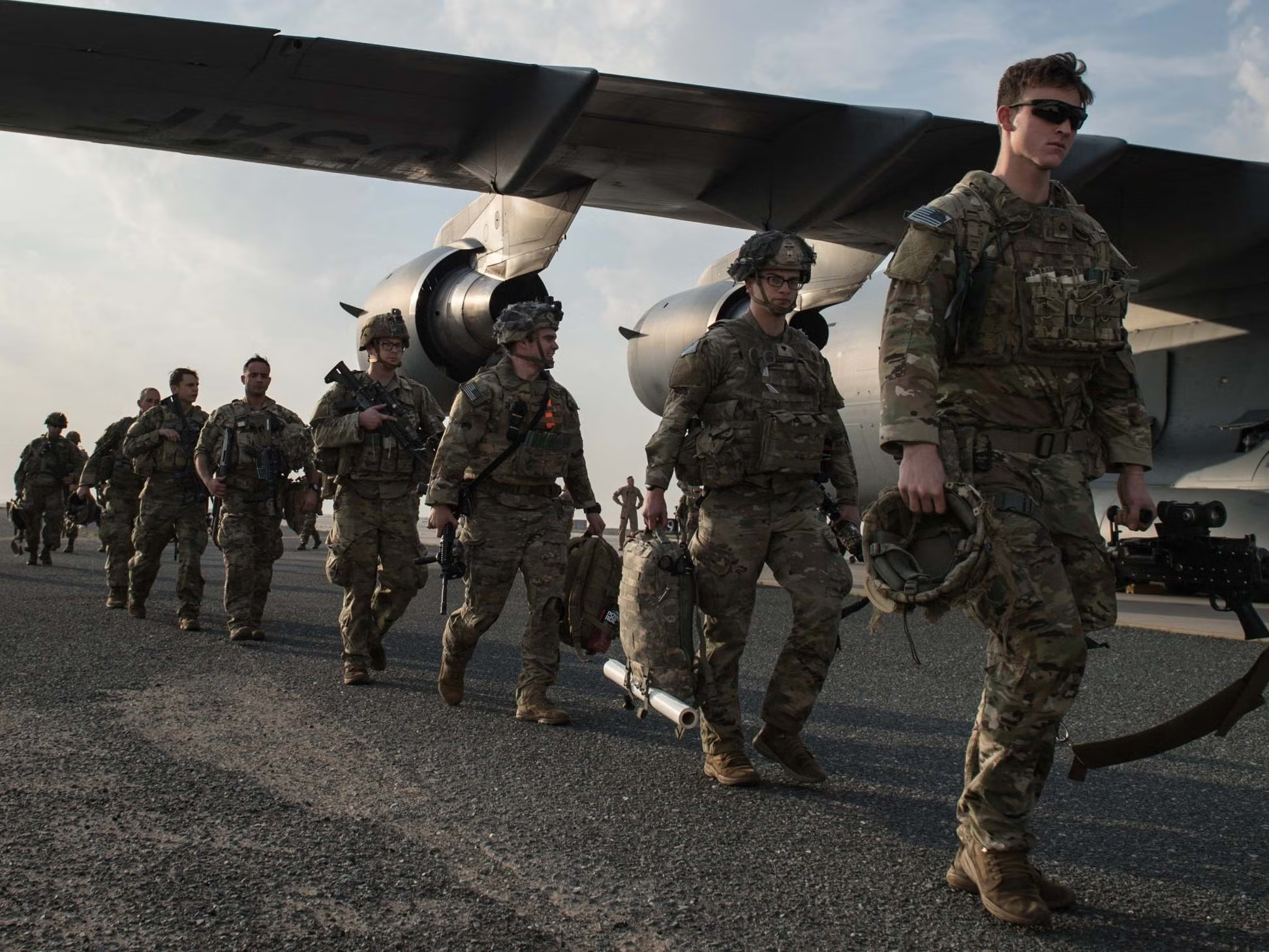United States President Donald Trump confirmed on Wednesday that US personnel are being withdrawn from parts of the Middle East after heightened fears of conflict with Iran and a breakdown in nuclear negotiations.
Speaking to reporters in Washington, Trump said staff were being moved out of the region because it could become “a dangerous place.” The decision follows reports that US embassies and military outposts in Iraq, Kuwait, and Bahrain were reducing personnel due to rising security concerns.
“We’ve given notice to move out and we’ll see what happens,” Trump said, while reaffirming his long-held position on Iran’s nuclear programme. “They can’t have a nuclear weapon, very simple. We’re not going to allow that.”
His remarks come as the latest round of nuclear talks between Washington and Tehran appears to stall. Although five rounds of negotiations have taken place since April, and a sixth was planned, Trump admitted in a podcast interview with the New York Post this week that he is becoming “less confident” about reaching a new deal to replace the 2015 nuclear agreement, which he abandoned during his previous term in 2018.

The US president has revived his “maximum pressure” campaign since returning to office in January, warning that military action remains on the table if diplomacy fails. He also revealed he has urged Israeli Prime Minister Benjamin Netanyahu to delay any strike on Iran’s nuclear facilities, but signalled his patience may be wearing thin.
Iran, meanwhile, issued a stark warning of its own. Defence Minister Aziz Nasirzadeh said Tehran would target all US military bases in the region if conflict erupts.
“All its bases are within our reach… and without hesitation we will target all of them in the host countries,” Nasirzadeh said. “God willing, things won’t reach that point, and the talks will succeed. But the US will suffer more losses if it comes to conflict.”
The US maintains several bases across the Middle East, including its largest in Qatar. In 2020, Iran fired missiles at US installations in Iraq in retaliation for the assassination of top Iranian general Qassem Soleimani, causing traumatic brain injuries to dozens of American troops.
As tensions continue to mount, the UK’s Maritime Trade Operations unit—run by the Royal Navy—has advised ships passing through the Gulf to proceed with heightened caution.
The standoff revolves around Iran’s uranium enrichment programme, which Tehran insists is for peaceful purposes. Iran is reportedly enriching uranium to 60 percent purity, far exceeding the 3.67 percent limit set in the 2015 deal and edging closer to the 90 percent level required for a nuclear weapon. Without concrete proof, western nations have long suspected Iran of pursuing atomic weapons, a claim it denies.
Last week, Iran’s Supreme Leader Ayatollah Ali Khamenei declared uranium enrichment a “non-negotiable” right and dismissed US objections, stating, “Washington cannot have a say.”
In response to the latest draft agreement from Washington, Iran has promised to submit a counter-proposal, arguing that the current plan does not offer sufficient sanctions relief—a key demand from Tehran, which has struggled under years of crippling economic pressure.


 Trending
Trending 